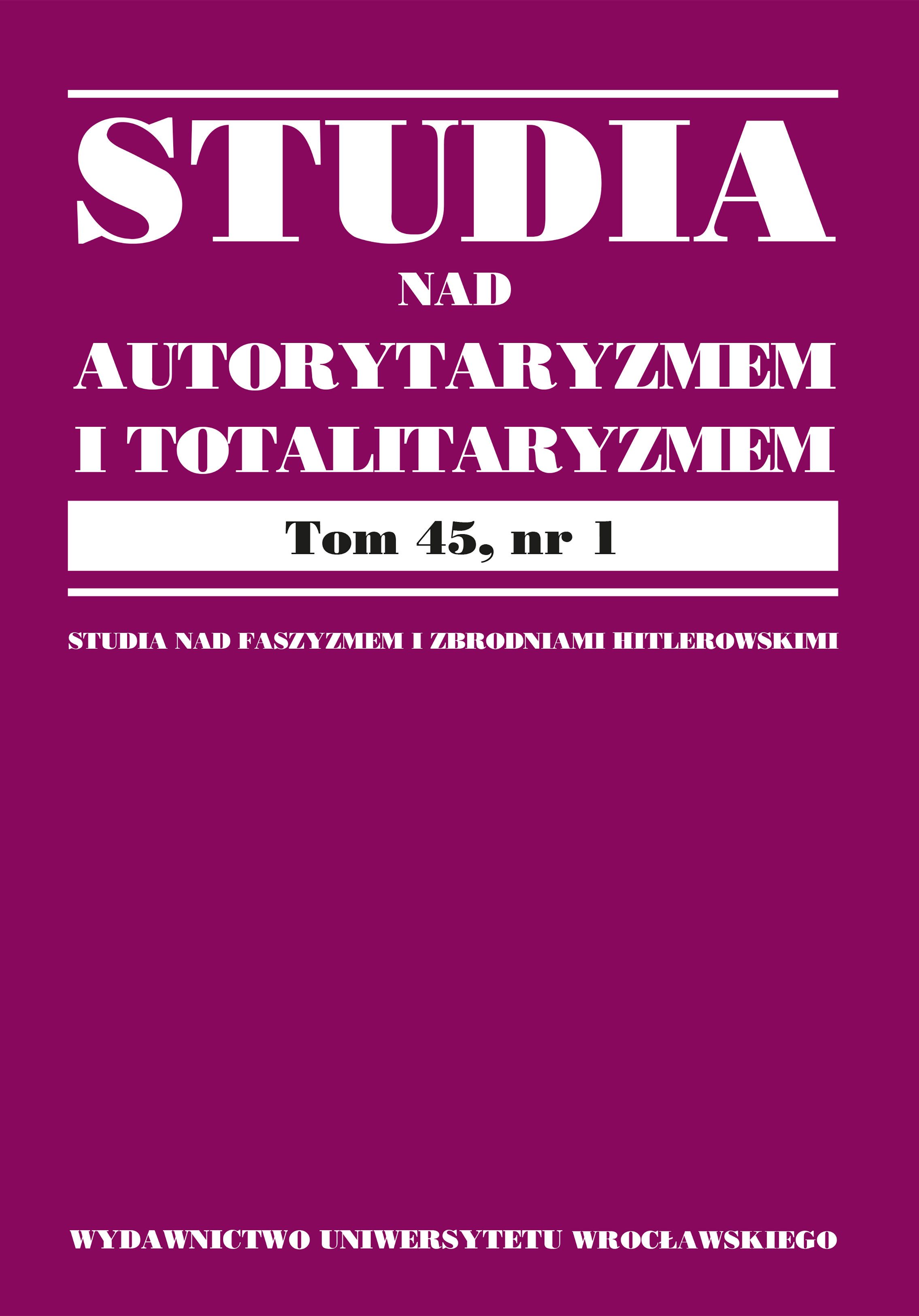

Artykuły

This article presents the issue of criminal proceedings before the Highers Regionals Courts of the Third Reich. The institution had its own tradition, as it had already existed prior to Hitler’s rise to power. By virtue of its powers and its territorial scope — the territory of the federal state, during the war the occupied district (Reichsgau) or the province (Provinz) — it was within the range of influence of National Socialist ideology and the totalitarian state. In the initial years of the Third Reich, and especially during the Second World War, the legal system was in constant flux. The author begins with an analysis of case law in which Poles were charged and convicted by the Higher National Court in the given district or province under occupation. Judgments against representatives of other nationalities were also analyzed on a comparative basis. The accusations, trial and sentences submitted by the prosecutor’s office are an obvious example of the lawlessness in the legal system of the Third Reich.
The timespan of the article is 1933–1945, with special emphasis on the period of the Second World War. In the years leading to the war and during its course, the activities and functioning of the prosecutor’s office and the courts were carried out in accordance with the interests of the Third Reich. The rule of law was effectively abolished at that time. The article is based primarily on materials found in Polish and German archives. Case law of the People’s Tribunal was also put under scrutiny. The surviving file material on the activities of the higher national courts is not complete. The establishment of the People’s Tribunal was an illegal act, carried out in violation of the provisions of the Basic Law, the Constitution then in force. Similarly, the Third Reich subordinated to itself the judiciary, the highest national courts, whose decisions concerning crimes against the state system and its security are proof of an intent to violate the law. Trial proceedings, judgments of the higher national courts against Poles or people of other nationalities accused of crimes that endangered the security of the state, such as high treason or treason against their country, were unlawful. The lack of available trial files on the activities of the higher national courts makes it impossible to make a quantitative assessment or approximate the phenomenon of politically motivated trials. Alongside the institutional reconstruction of the judiciary in the Third Reich, changes were made to the Criminal Code and the Code of Criminal Procedure. Under the guise of protecting the state, the national community, the law became repressive and finally sanctioned lawlessness.